Various rendering choices? -- Challenge!
-
@simon le bon said:
But it remains a difficult exercise I guess

Simon,
Tedious, yes! -- Difficult, not so much.
Technically, the concept is simple. Scaling the sine wave lengthwise, to fit each straight line segment, is all that's required (while keeping the wave height constant.) It just takes some time to do each segment. If you need another example, here's a "flat" weave that employs the same technique:
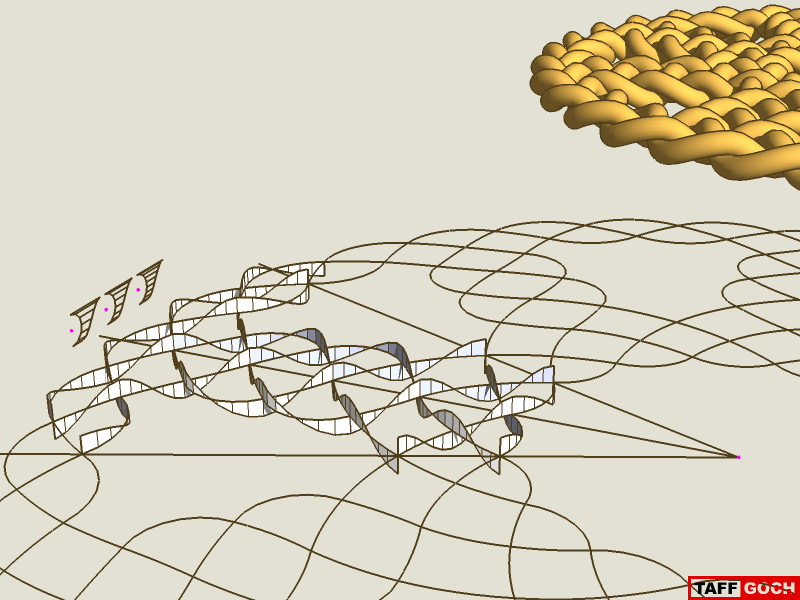
If it had not been for the radial symmetries in both of the weave models, I would not have attempted them. With symmetries and component-copying, the modeling becomes (almost) trivial. Actually, the flat weave was more troubling than the sphere!Taff (Welsh nickname, for Dave) Goch (Welsh, for "red")
-
that will look nice on my Christmas tree this year.
-
@richcat said:
A couple or tries with IRendernXt
Richard, I like the dark carbon-tinted version. Again, it's the complex reflections that produce the visual interest -- all other features (distractions) removed.
It's like comparing b&w to color photography. Shadows and reflections take precedence. Nice exercise.
-Taff
-
I had a little try in Shaderlight... did need some postpro afterwards, but not much.
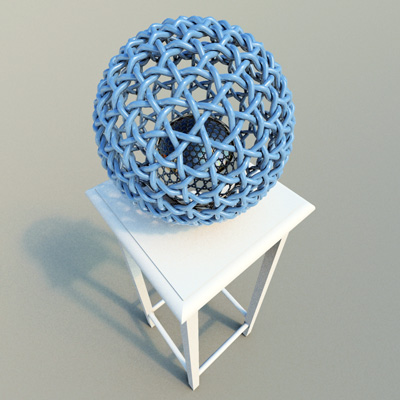
-
Here is something from Thea. Tried global medium and a single light.
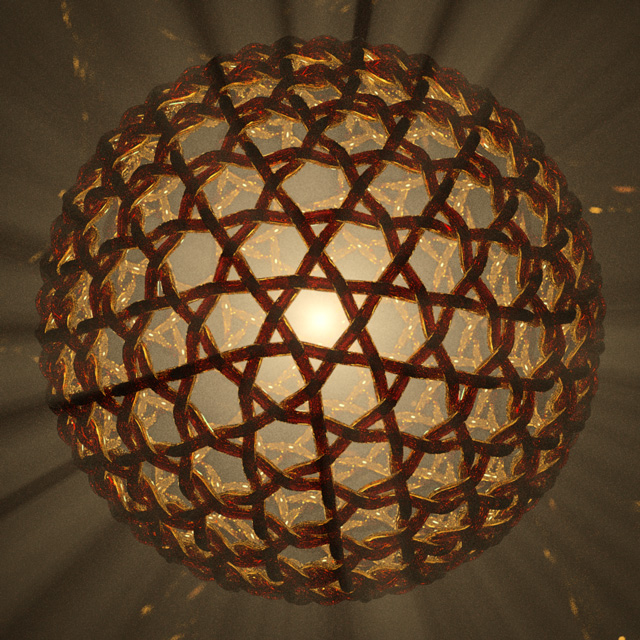
-
@simon le bon said:
...PS: I'm completely found of your warehouse geodesic collection
Taff also "maintains" a very interesting discussion group about the staff.
-
Tried playing with the new Thea Thin Film, interesting but only partially successful.
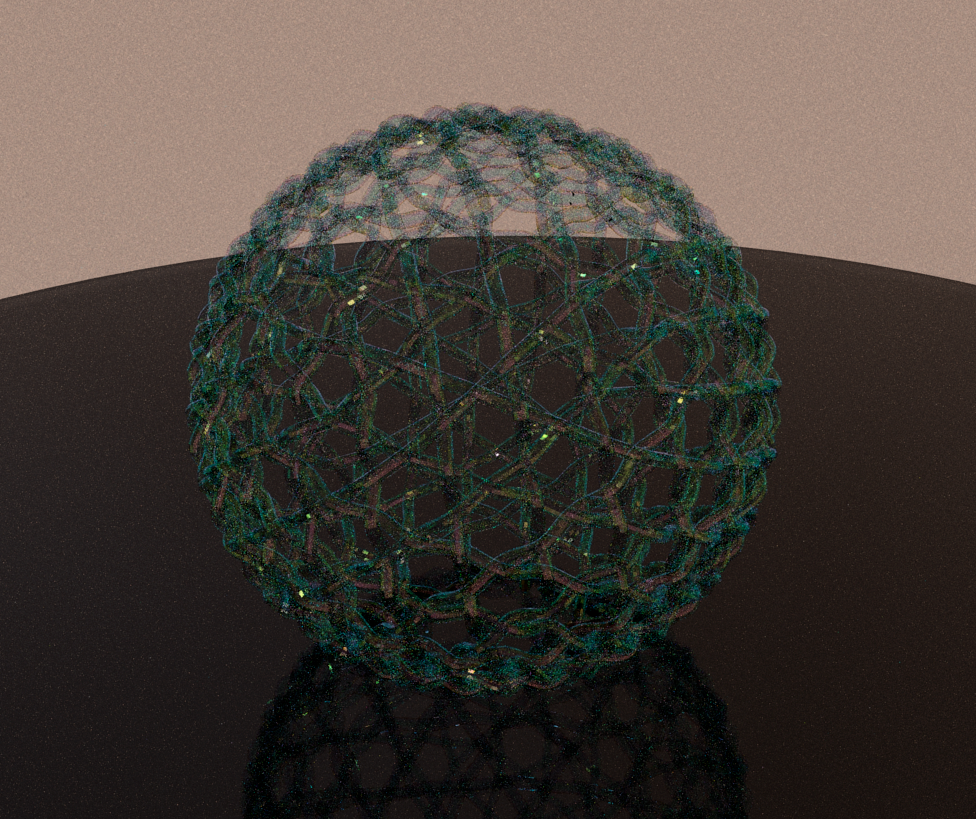
-
The internal mirror globe (Pyroluna) and the internal lighting (notareal) introduce enchanting complexities to the renders.
(I especially like the "God rays" produced by the "fog" in notareal's render.)
-Taff
-
Really nice Pentti!

-
Here is another try (again pure render from Thea).
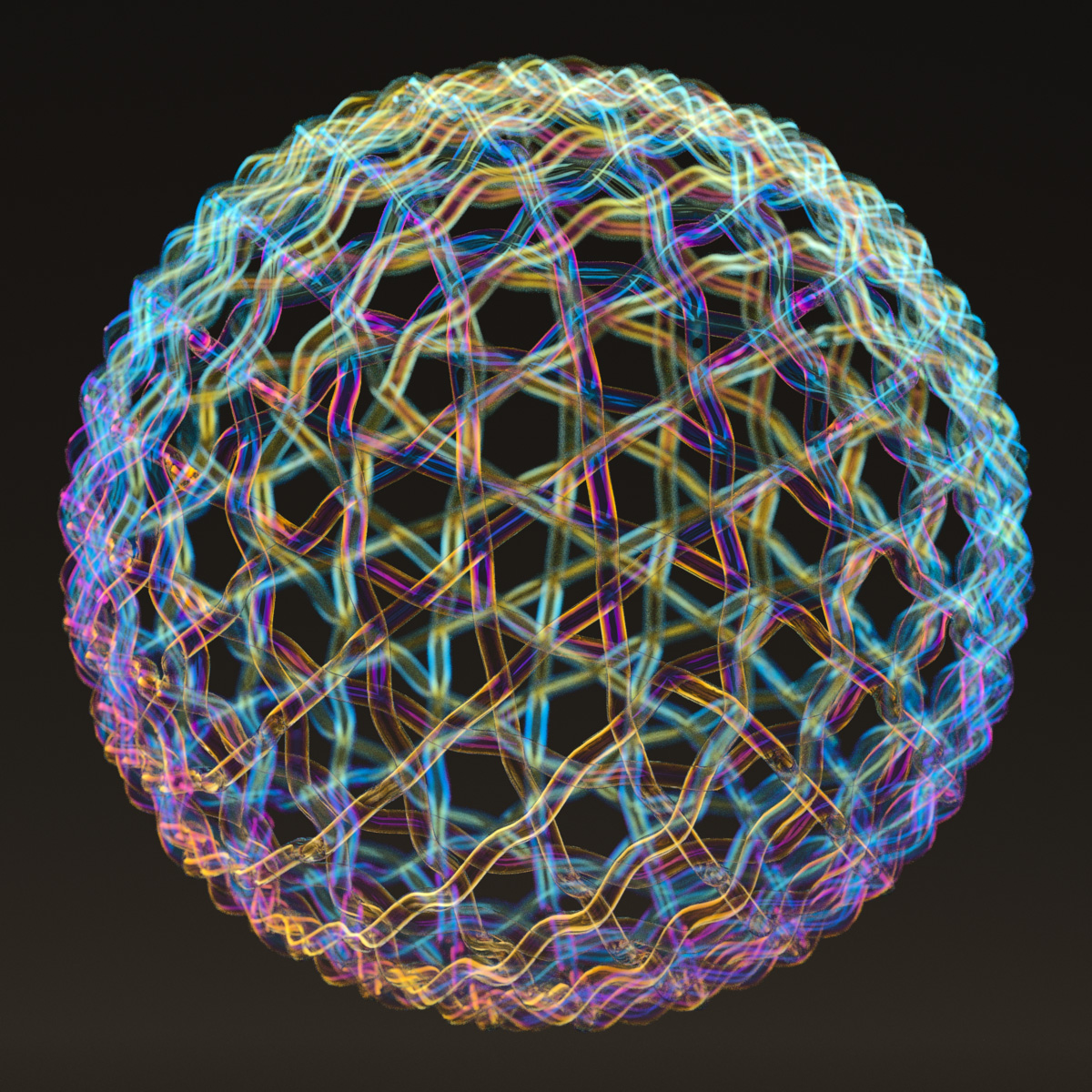
-
Wow! I love it. What are the settings for this material? and what material is this?
Lights? -
notareal,
I'm also intrigued by your Thea transparent material for your latest.Is this material available for download (here or at Kerky website.) ?
Here's my latest (slowly improving) attempt at jade (still using Photoshop adjustments):

(I'm testing only material changes, to get accustomed to the materials editor parameters in Kerkythea. I'll move on to lighting & environment, after I'm more comfortable with materials.)
-Taff
-
Sorry, unfortunatelly Thea materials cannot be used in KT, material systems are that different. Thea can do a conversion of KT materials, but as it does use heuristic, one might need to tune up imported complex KT materials.
But to the render... The material uses thin film interference for color and fairly simple studio with HDR. You can find full Thea scene here (Note: need to use Thea RV378 or later). -
There are some other, interesting layers in there...
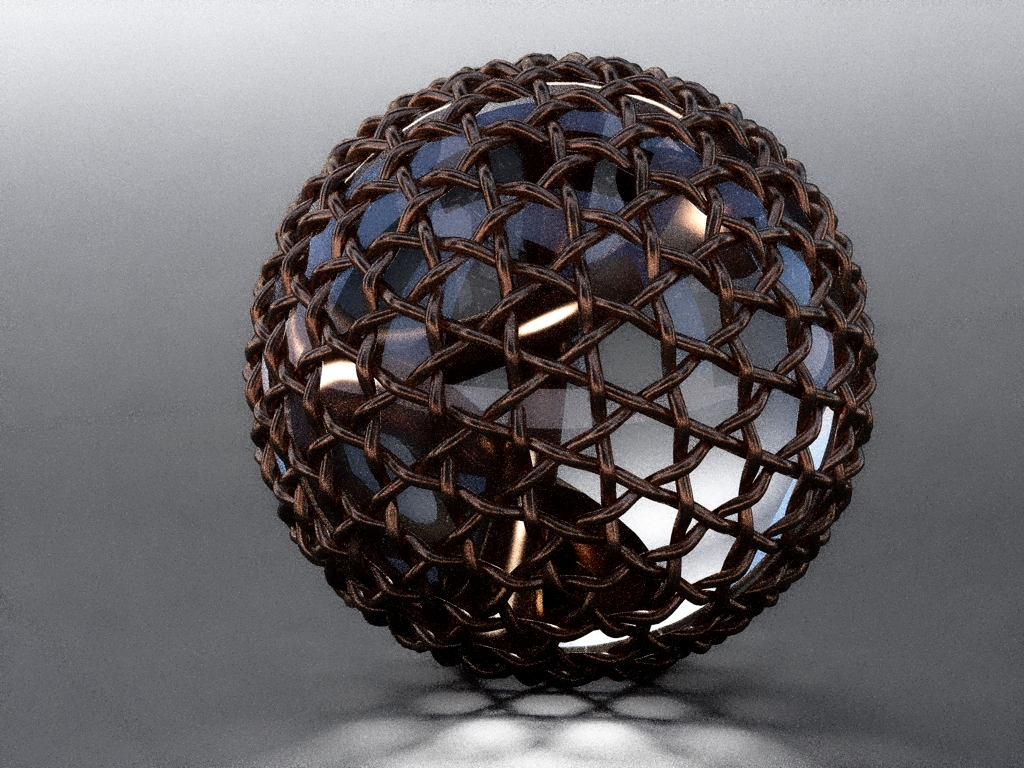
-
A first quick one with ArtLantis. 20 seconds.
Anssi
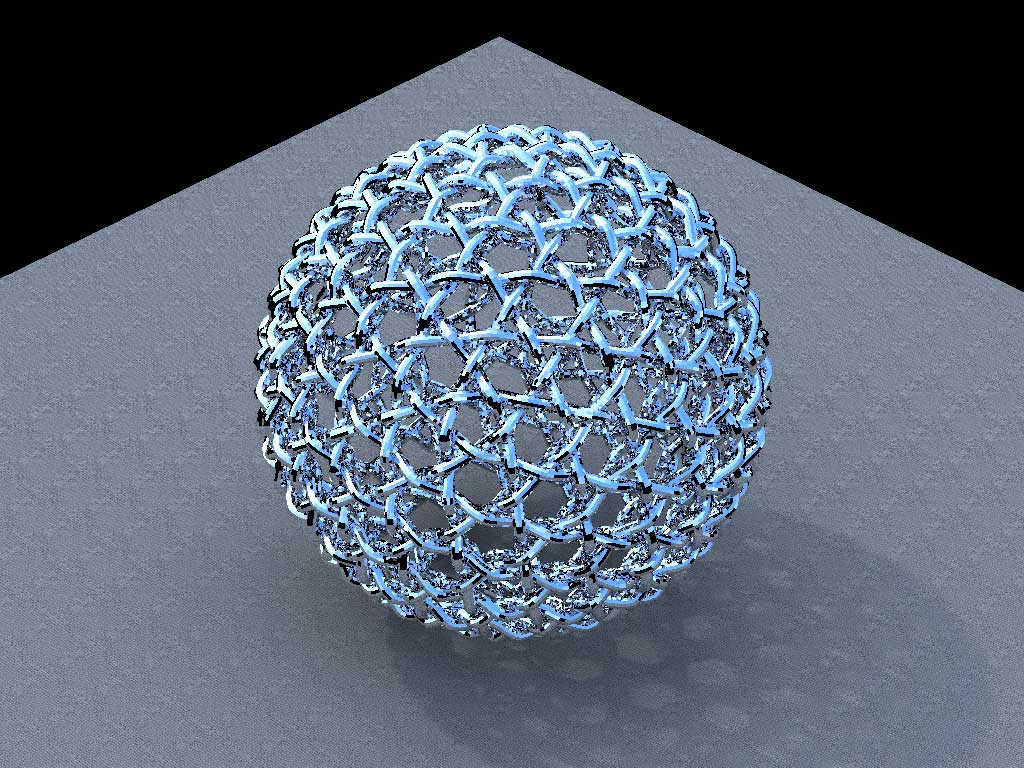
-
@solo said:
I smell a render challenge....

Frigging cool model, curious how it was made.Your wish is granted...
I included hidden layers in the model, to demonstrate the development of the sinusoidal "Follow me" path. The methods are conceptually simple, and radial symmetries permit copies of components, so it's not as complex as it first appears.
BTW, you may consider yourself challenged....
-Taff
-
@gaieus said:
There are some other, interesting layers in there...
Indeed! Extreme "lensing" magnification, by that orb.
Nice resultant caustics, too.
-Taff
-
@unknownuser said:
The material uses thin film interference for color and fairly simple studio with HDR.
You mean you used thin film and nothing else?

well, that HDRI must be a good one. -
Twilight Render. Progressive, 175 passes.
Iridescent Coated Aluminum material, two spot lights.
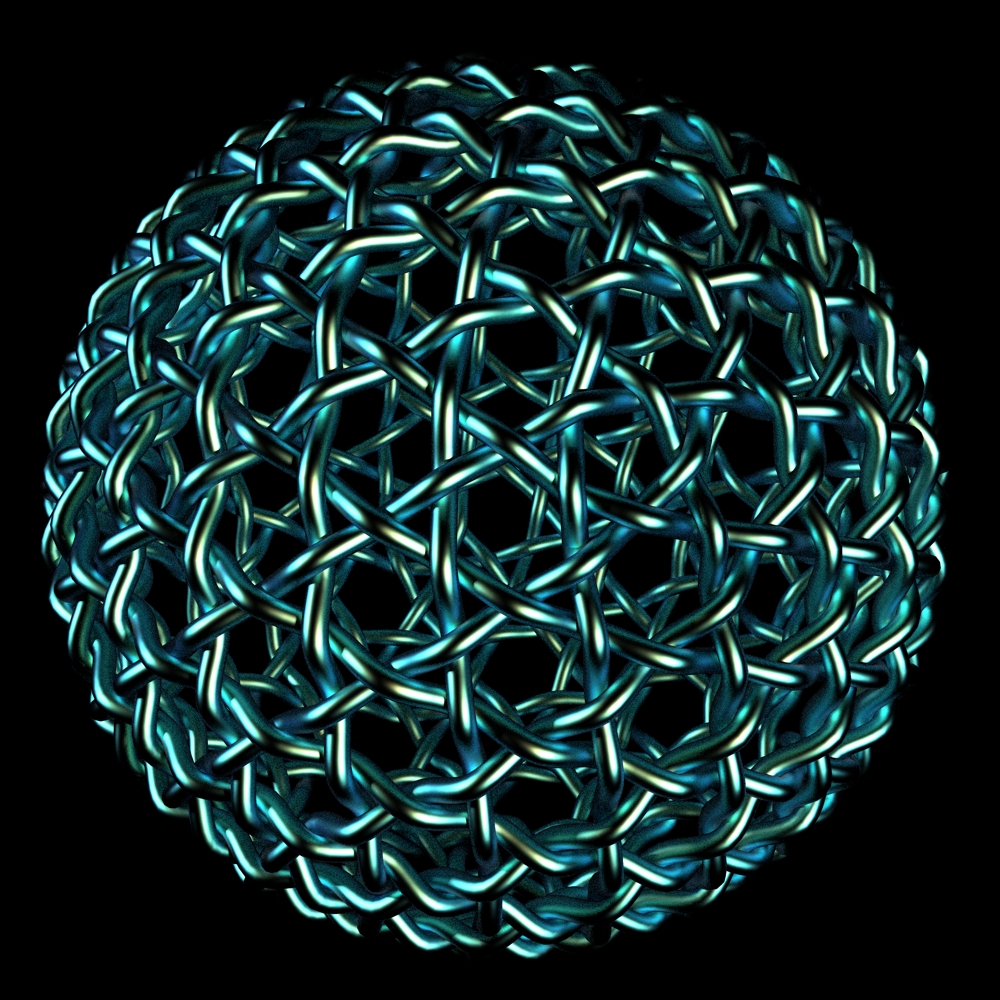
-
It must be a guy thing... we love rendering balls.
Advertisement







